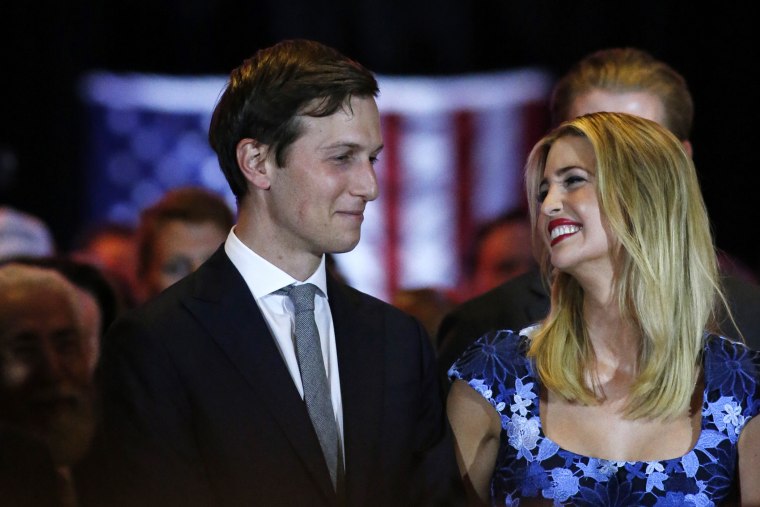Donald Trump's campaign struck a deal with Sinclair Broadcast Group during the campaign to try and secure better media coverage, his son-in-law Jared Kushner told business executives Friday in Manhattan.Kushner said the agreement with Sinclair, which owns television stations across the country in many swing states and often packages news for their affiliates to run, gave them more access to Trump and the campaign, according to six people who heard his remarks.In exchange, Sinclair would broadcast their Trump interviews across the country without commentary, Kushner said. Kushner highlighted that Sinclair, in states like Ohio, reaches a much wider audience -- around 250,000 listeners -- than networks like CNN, which reach somewhere around 30,000.
Kushner claims Team Trump 'struck a deal' for better coverage
Did the Trump campaign reach an agreement with Sinclair Broadcast Group -- before Election Day -- to "secure better media coverage"?

One of the under-appreciated scandals of the Bush/Cheney era was the Republican administration's preferred approach to propaganda. In addition to paying pundits to endorse the then-president's agenda and paying retired military officers to say they agreed with Bush’s policies, there were the pre-packaged "news" segments created by the administration and then distributed to local television stations.It was quite an operation: Bush/Cheney agencies would create reports that looked like news segments, but which were actually just propaganda, carefully crafted to put the Republican administration's agenda in a favorable light. Bush's team hoped local stations, eager for well-produced "news" content, would simply air the pseudo-segments as-is -- never disclosing to the public where the videos came from.And some did exactly that. In 2006, the Federal Communications Commission accused stations owned by Sinclair Broadcast Group, one of the nation's largest owners of local affiliates, as being among the biggest offenders.Two years earlier, as the New York Times reported, ABC's "Nightline" intended to broadcast the names of every member of the armed forces killed in action in Iraq. Many of the Sinclair Broadcast Group's stations refused to air the program.A decade later, it appears Sinclair is back in the news. Politico reported the other day:
According to the report, Kushner told the executives, "It's math." [Update: See Sinclair's full statement below responding to the claims.]As Politico's report emphasized, Sinclair insists there was nothing nefarious going on behind the scenes: the media company arranged sit-down interviews, it said, and offers were extended to candidates in both parties.But based on the published report, Kushner is under the impression that the campaign reached some kind of specific agreement with Sinclair, effectively trading access for favorable coverage.Kushner, Trump's son in law and a trusted advisor, made the comments "at an off-the-record meeting in the Morgan Stanley Cafeteria for the Partnership for New York City, a business group."Update: Scott Livingston, Sinclair Broadcast Group's vice president of news, said in a statement this afternoon, "Over the past three days, there have been numerous misleading press stories about Sinclair's election coverage. I now need to set the record straight. We offered both major presidential candidates the same opportunities to be interviewed by our local anchors on a regular basis. There was no 'deal' on the tone, tenor, or subject of the interviews. We did not offer favorable or preferential treatment to either candidate, nor did we ever waiver [sic] from our commitment to provide rigorous, thoughtful, and thorough coverage to the millions who rely on local television."It is in everyone's best interest that candidates speak to voters through interviews with professional reporters. Our outreach to both Secretary Clinton's and President-elect Trump's campaigns was meant to deliver meaningful, informative newscasts to our local viewers. We stand behind that practice."